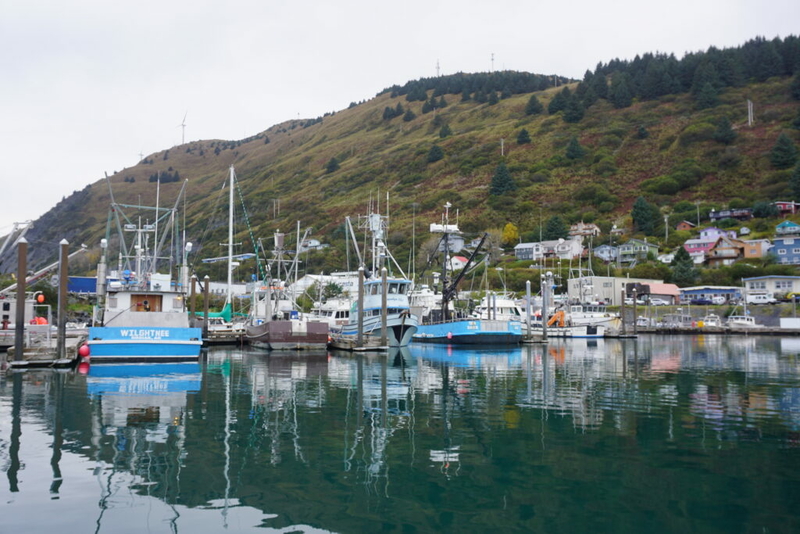Kodiak lawmakers outline fishery-related accomplishments and ambitions

A bill that passed the Alaska Legislature last year has already started to benefit the fishing industry, and more fishing-specific bills are in the works this year, state lawmakers representing Kodiak said on Friday at an industry conference.
Alaska Senate President Gary Stevens, a Republican leading a bipartisan majority, told the audience at ComFish Alaska that he is particularly proud of a bill he sponsored that expands allowable tax credits for investments in equipment to process seafood beyond salmon and herring.
The seafood product development tax credit bill, passed and signed into law last year, has “already had an enormous impact, and will have an impact not only on the processors but the value to the fishermen,” said Stevens, who spoke by teleconference. “We know we’re not going to be able to produce a lot more product than we are now, but we can get more value out of it, that’s the important thing.”
The bill expanded allowable seafood-production tax credits to investments in equipment for pollock, Pacific cod and sablefish, also known as block cod. Previously, only salmon- or herring-related investments were eligible for those credits.
Overall, Stevens said, lawmakers are facing difficult choices about budgeting, workforce development and other issues. He said Gov. Mike Dunleavy is working well with lawmakers. “I think he’s willing to cooperate with us and the tough situations that we are in,” Stevens said of the Republican governor.
Rep. Louise Stutes, also a Republican from Kodiak, listed bills she is trying to get passed, two of them repeats of previous years’ bills.
One, House Bill 18, would allow regional associations developing new fisheries to form and assess taxes on participants to raise money for management. Revenues could be used to pay for required surveys, for example, said Stutes, who spoke in person at the Kodiak event. Participants would have the option to reduce their self-assessed tax, she said.
Another bill, House Bill 19, is a reintroduced version of a bill that went as far as the Senate Finance Committee last year. Under the bill, owners of vessels with current Commercial Fisheries Entry Commission licenses would not be required to have their vessels also registered with the Division of Motor Vehicles. That additional DMV registration has been required ever since a separate bill aimed at managing derelict vehicles was passed and signed into law in 2018.

“Believe it or not, I think I’m going to make another stab at the conflict-of-interest bill, of getting it through,” she told the ComFish audience. “I have high hopes, but I’ve had high hopes for the last eight years.”
Stutes said her intention is to change the current requirement that board members with identified conflicts physically remove themselves at public meetings from discussions of relevant subjects.
“The conversations still go on. They just don’t go on in public; they go on behind closed doors,” she said. The bill would keep the requirement that board members with conflicts abstain from voting on relevant subjects, but it would allow them to participate in the public discussions, she said. “Because what is the point of being on the board of fish with your area of expertise if you can’t share it?” she said.
Stutes said she and other legislators are skeptical of the Dunleavy administration’s attempt to gain state control of wetlands-development permitting currently managed by the U.S. Army Corps of Engineers. That is known as Section 404 permitting, after the portion of the federal Clean Water Act related to dredging and filling of wetlands.
“I would venture to say that that is directly related to — that it is felt — that they would be able to undo what the feds have done and move forward with Pebble Mine project,” she said, referring to the Environmental Protection Agency’s decision in January to invoke a rarely used provision of the Clean Water Act to block development of the controversial Pebble copper and gold mine in the Bristol Bay watershed.
The Dunleavy administration is working on a plan to assume state control of Section 404 permitting, arguing that it will benefit the state, and is asking the Legislature for $5 million in the upcoming budget to fund continued work. There are opponents to the plan, including the environmental organization Cook Inletkeeper.
In an emailed statement, Alaska Department of Environmental Conservation Commissioner Jason Brune said EPA’s action on Pebble and its use of statutory power to make such decisions would be unaffected by state assumption of 404 permitting powers. “State-run programs are specifically prohibited, by regulation (40 CFR 233.30(c)), from issuing, or trying to re-issue, a 404 permit in this type of scenario,” Brune said by email.
Though fishers and fishing groups celebrated EPA’s decision on the Pebble Mine, Dunleavy, Brune and other top administration officials harshly criticized it, and Dunleavy announced his intention to file a lawsuit over the matter.








